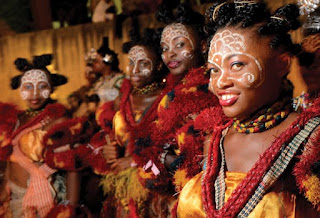Liberia culture people food and festivals
Liberia History, Language and Culture
During this period, European traders established contact with coastal communities whose inhabitants became fluent in many languages. The slave trade both expanded this connection to the rest of the world and caused deep changes in legal and social structures within Liberia, draining the country of skilled, youthful people.
As resistance to the slave trade grew, a movement began in the USA called the American Colonisation Society (ACS), which sought to return African slaves back to their motherland. Critics say the ACS was borne out of fear that freed slaves would pose a threat to American society, but, nevertheless, the group established the colony of Liberia in 1822 and sent thousands of emancipated slaves there to start new lives.
Indigenous Liberians allowed the new arrivals to share their land, but were surprised when the settlers didn’t abide by the laws of the local chiefs. Scuffles ensued. So in 1847 the settlers, aided by the United States, formed a republic to reinforce their right to rule themselves and to defend themselves against a series of indigenous attacks.
Traditional and Western lifestyles coexist; however, traditional values, customs, and norms influence the Western type considerably. In cities both Western and African music and dancing styles are in vogue, but in rural areas traditional rhythms are favoured. Schools instruct students in the legends, traditions, songs, arts, and crafts of African culture, and the government promotes African culture through such agencies as the National Museum in Monrovia, the Tubman Center for African Culture in Robertsport, and the National Cultural Center in Kendeja, which exhibits architecture of the 16 ethnic groups of Liberia. Mask making is an artistic pursuit that is also related to the social structure of some ethnic groups. Music festivals, predominantly religious, are held in most communities. The University of Liberia has an arts and crafts centre. There are several libraries, including a children’s library in Monrovia and a National Public Library




















No comments:
Post a Comment